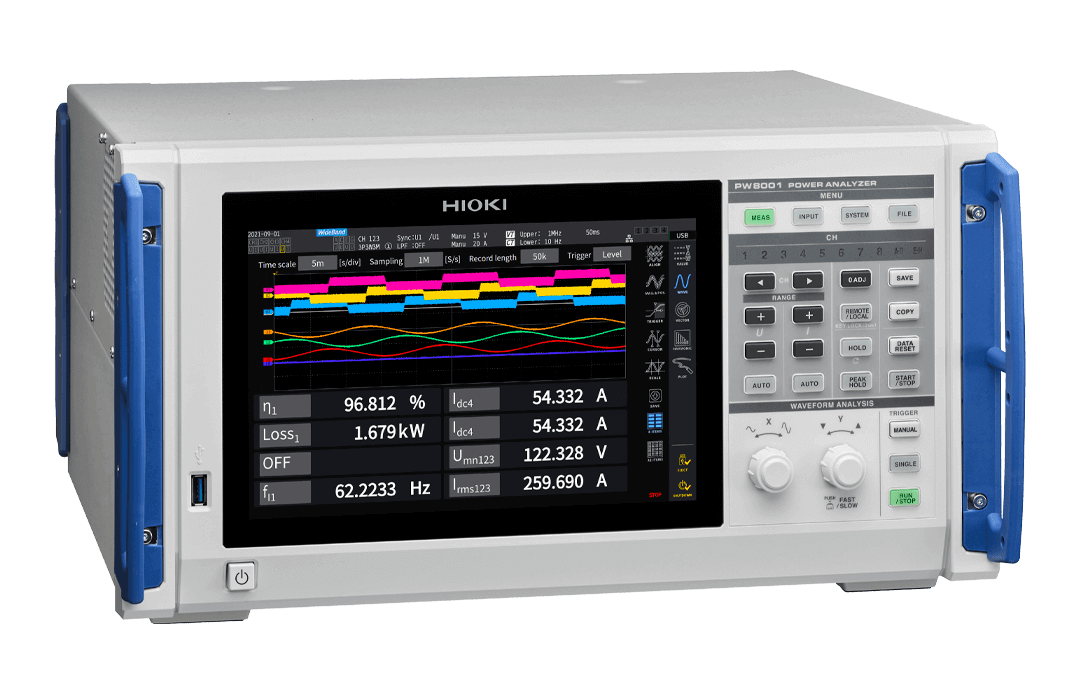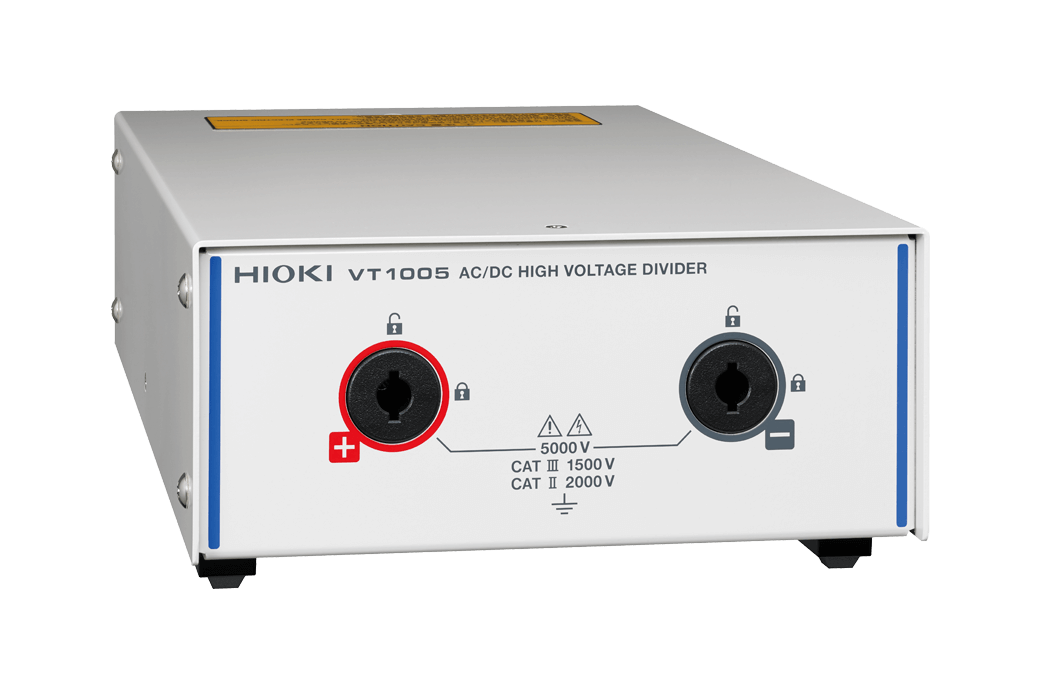Evaluation of the Efficiency of Inverters That Use SiC Power Devices in Electrical Railways
Issues
Inverters used in applications such as railways and other transportation convert high-voltage power, and it’s necessary to measure high voltages to measure the efficiency of those devices. Silicon carbide (SiC) is attracting attention as a next-generation material that could take the place of conventional silicon (Si). The use of SiC power devices in inverters makes it possible to balance high-speed switching control with high-efficiency power conversion. Developers and manufacturers need to be able to measure efficiency accurately on the order of 0.1% to verify the effects of efficiency improvements in such inverters. So, the ability to measure the high-frequency components of the output power is essential.

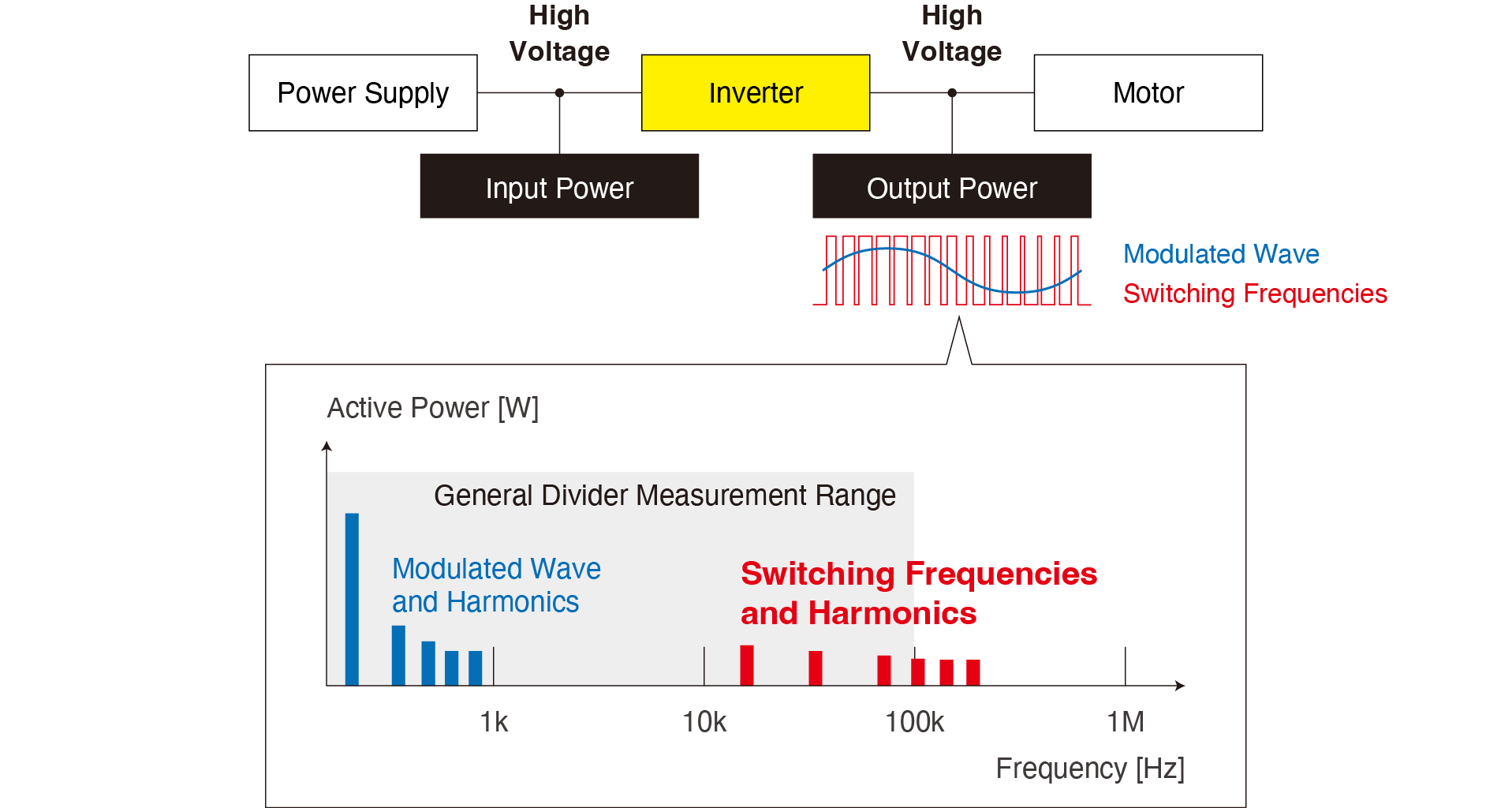
Active Power Spectrogram for an Inverter’s Output Power
Solutions
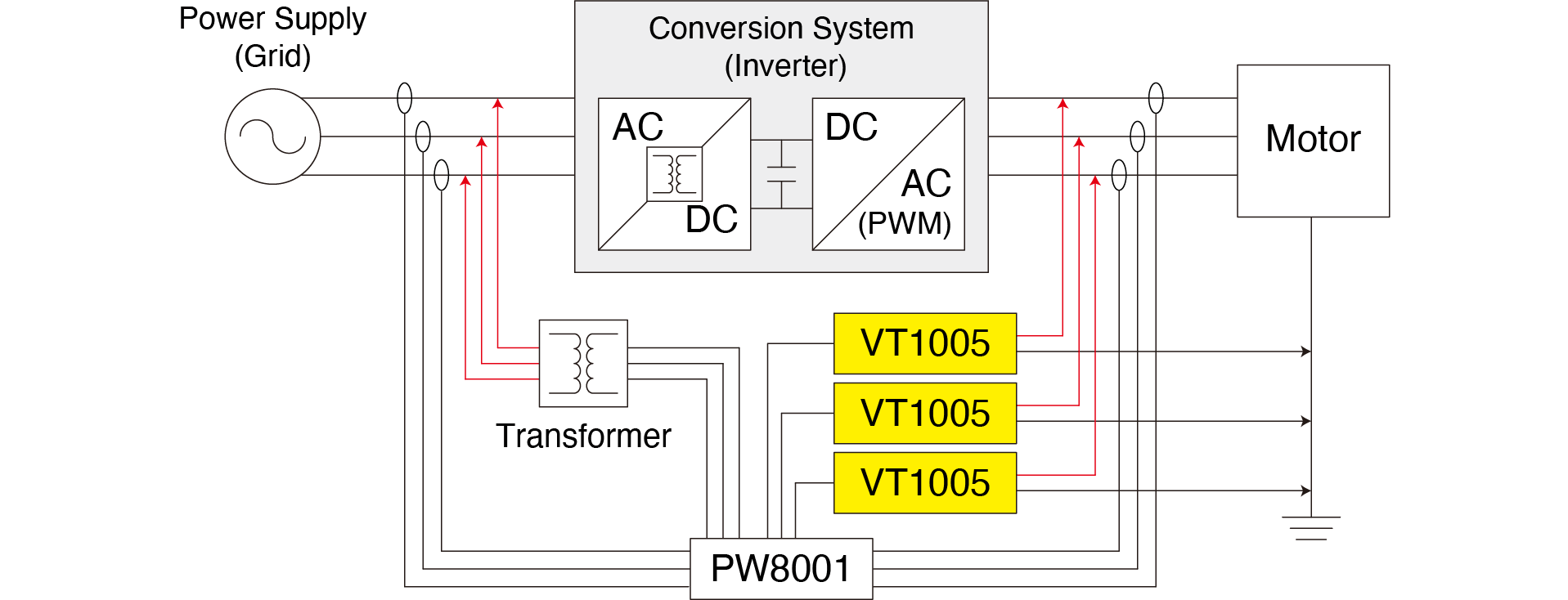
(Measurement Example) Efficiency Measurement of Railways Inverters
The VT1005 can be used with a power analyzer PW8001 to measure the efficiency of inverters that use SiC power devices.
High-Voltage Measurements
The VT1005 allows power analyzers to measure voltages of up to 5000 V.
Measurement Category
- 5000 V rms (±7100 Vpeak) No measurement category
- 2000 V rms CAT II
- 1500 V rms CAT III

Measurement of High-Frequency Components
The VT1005’s measurement band is DC to 4 MHz, allowing it to measure voltage from DC to high frequencies.In addition, the excellent flatness of the amplitude and phase characteristics in the measurement band enables highly accurate power measurement.
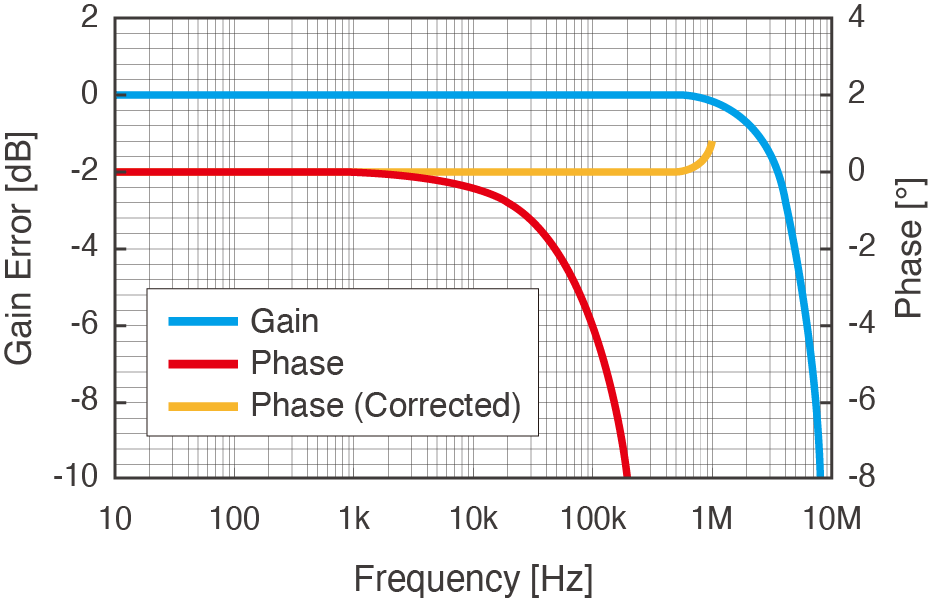 VT1005 Frequency Characteristics (Typical Value)
VT1005 Frequency Characteristics (Typical Value)

